The firestorm surrounding journalist Shireen Abu Akleh's death

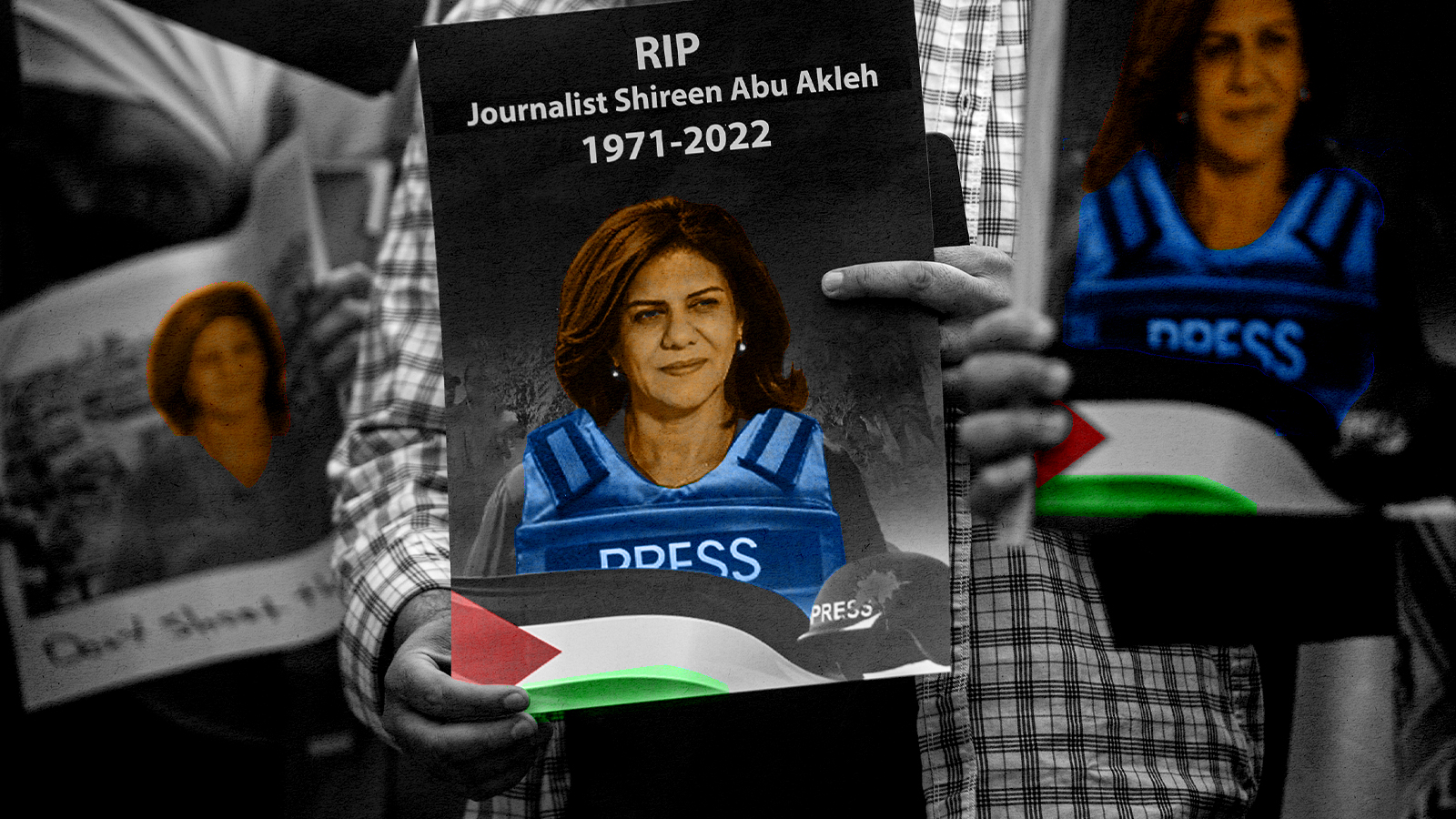
A free daily email with the biggest news stories of the day – and the best features from TheWeek.com
You are now subscribed
Your newsletter sign-up was successful
On May 11, Palestinian-American journalist Shireen Abu Akleh, 51, was killed while covering an Israeli military raid in the West Bank city of Jenin. Nearly a month later, a number of details about her death remain unclear. Here's everything you need to know:
What happened to Shireen Abu Akleh?
Early on the morning of May 11, beloved veteran Al Jazeera journalist Abu Akleh and a group of fellow reporters arrived at a refugee camp in the city of Jenin to cover an Israel Defense Forces raid. Taking precautions to keep herself safe, Abu Akleh donned a protective helmet, as well as body armor marked "PRESS" in big, bold letters. She made her presence known to soldiers, and a number of onlookers even stopped to watch her work, given her fame. Soon, however, the group of journalists came under fire. Abu Akleh was shot in the head, while her producer Ali Samoudi was shot in the back. Samoudi survived; Abu Akleh did not.
Immediately, controversy erupted. Al Jazeera, the Palestinian Health Ministry, and eyewitnesses blamed Israeli forces for her death, while the Israeli military and President Naftali Bennett initially suggested reckless Palestinian gunfire was responsible. Not too long after, however, it was reported that the IDF conceded it was possible one of its soldiers killed Abu Akleh. Journalists at the scene also said there were no Palestinian troops present, and an investigation from Israeli human rights monitor B'Tselen appeared to discredit IDF's initial claims.
The Week
Escape your echo chamber. Get the facts behind the news, plus analysis from multiple perspectives.

Sign up for The Week's Free Newsletters
From our morning news briefing to a weekly Good News Newsletter, get the best of The Week delivered directly to your inbox.
From our morning news briefing to a weekly Good News Newsletter, get the best of The Week delivered directly to your inbox.
Then, on May 13, thousands gathered to commemorate Abu Akleh's death, only to be attacked by Israeli police officers who hit mourners with batons and threw stun grenades into the crowd. The pallbearers holding her coffin nearly dropped it. Israeli authorities claimed they wanted to prevent the funeral from becoming a nationalist rally, reported The New York Times Editorial Board, and that they had acted in Abu Akleh's family's interest, Foreign Policy added; but her brother denied the latter claim.
"The minute Shireen was brought out of the morgue, that very minute, the Israeli police attacked the pallbearers," he said. "I didn't know what to do in the face of such barbaric and extensive use of force by the police."
Then-White House Press Secretary Jen Psaki called the images out of the event "deeply disturbing."
Do we know who killed her?
The finger-pointing has yet to reach a definitive conclusion.
A free daily email with the biggest news stories of the day – and the best features from TheWeek.com
The Israeli government offered to investigate the journalist's death in conjunction with Palestinian authorities, but the latter refused out of fear Israeli officials would whitewash or muddy the inquiry.
But an independent investigation from CNN based on eyewitness testimony, video evidence, and analysis of the incident from an audio forensic analyst and an explosive weapons expert has suggested "Abu Akleh was shot dead in a targeted attack by Israeli forces," CNN alleged.
"The number of strike marks on the tree where Shireen was standing proves this wasn't a random shot, she was targeted," Chris Cobb-Smith, the explosive weapons expert, told the network.
Meanwhile, investigative journalism group Bellingcat's deep-dive into the killing concluded that the available open-source video evidence provides solid grounds to support the "multiple witness testimonies" blaming IDF soldiers for Abu Akleh's death.
On May 26, the Palestinian Authority shared the results of its investigation into the shooting, "again accusing Israeli soldiers of intentionally killing [Abu Akleh]," the Times wrote; Israeli Defense Minister Benny Gantz called the suggestion its military would purposely harm journalists a "blatant lie." And earlier that same week, the Palestinian foreign ministry also submitted a letter to the International Criminal Court "regarding various crimes committed by Israel in the occupied West Bank and particularly the "crime of execution" of [Abu Akleh]," the Times added.
Abu Akleh was an American citizen — how has the U.S. responded?
The U.S. State Department has called for an investigation of the killing. "It is important to us," spokesperson Ned Price said last month. "It is important to the world that that investigation be thorough, that it be comprehensive, that it be transparent and, importantly, that investigations end with full accountability and those responsible for her death being held responsible."
Since then, 57 Democrats in the House have signed and sent a letter to Secretary of State Antony Blinken and the head of the FBI urging the U.S. to conduct its own investigation. Sens. Mitt Romney (R-Utah) and Jon Ossoff (D-Ga.) made a similar appeal on Monday. "Press freedom is a core American value, and we cannot accept impunity when journalists are killed in the line of duty," the two lawmakers wrote to Blinken, who noted Tuesday that the U.S. will "follow the facts" regarding the journalist's death, "wherever they lead." "We are looking for an independent, credible investigation," Blinken added.
Is this the first time a Palestinian journalist has been targeted in Israel?
Unfortunately, no.
"At least 45 journalists have been killed by Israeli forces since 2000, according to the Palestinian Ministry of Information," Al Jazeera reported last month. "The Palestinian Journalists' Union places the death toll higher at 55 killed."
"In terms of the event itself, unfortunately, it is not unique, not different," Saleh Hijazi, deputy director of Amnesty International's Middle East program, said to Vox of Abu Akleh's death. "It fits a pattern, a pattern of unlawful killing, and also a pattern of targeting journalists and human rights defenders."
What does her death mean for journalists?
Some worry that Abu Akleh's death bodes poorly for the future of the press — unless, that is, justice is served, and governments and militaries treat it as a wake-up call.
"Unless the U.S. is willing to act on its words about accountability and see that justice is served, it not only will have failed one of its own," wrote The Atlantic's Yasmeen Serhan, "but will also be sending out a dangerous message to the world that the lives of journalists, even American journalists, are expendable."
"The work of journalists is essential to public accountability for the actions of any country's military," added the Times editorial board. "Journalists cannot do their jobs if they are targeted with impunity by any side in a conflict. Even if she was not singled out, Israel still needs to grapple with how this happened and what can be done to avoid similar tragedies."
Understanding what really happened would help "reinforce the message" that "noncombatants in a conflict zone — including clearly identified journalists, medical workers and civilians — must be protected."
Brigid Kennedy worked at The Week from 2021 to 2023 as a staff writer, junior editor and then story editor, with an interest in U.S. politics, the economy and the music industry.
-
 Film reviews: ‘Send Help’ and ‘Private Life’
Film reviews: ‘Send Help’ and ‘Private Life’Feature An office doormat is stranded alone with her awful boss and a frazzled therapist turns amateur murder investigator
-
 Movies to watch in February
Movies to watch in Februarythe week recommends Time travelers, multiverse hoppers and an Iraqi parable highlight this month’s offerings during the depths of winter
-
 ICE’s facial scanning is the tip of the surveillance iceberg
ICE’s facial scanning is the tip of the surveillance icebergIN THE SPOTLIGHT Federal troops are increasingly turning to high-tech tracking tools that push the boundaries of personal privacy
-
 Why Biden is banning Alaska Arctic oil drilling now
Why Biden is banning Alaska Arctic oil drilling nowSpeed Read The Biden administration blocks drilling on pristine federal land in Arctic Alaska
-
 The new Cold War in the Arctic, explained
The new Cold War in the Arctic, explainedSpeed Read Climate change creates a new battleground for the U.S., Russia and China
-
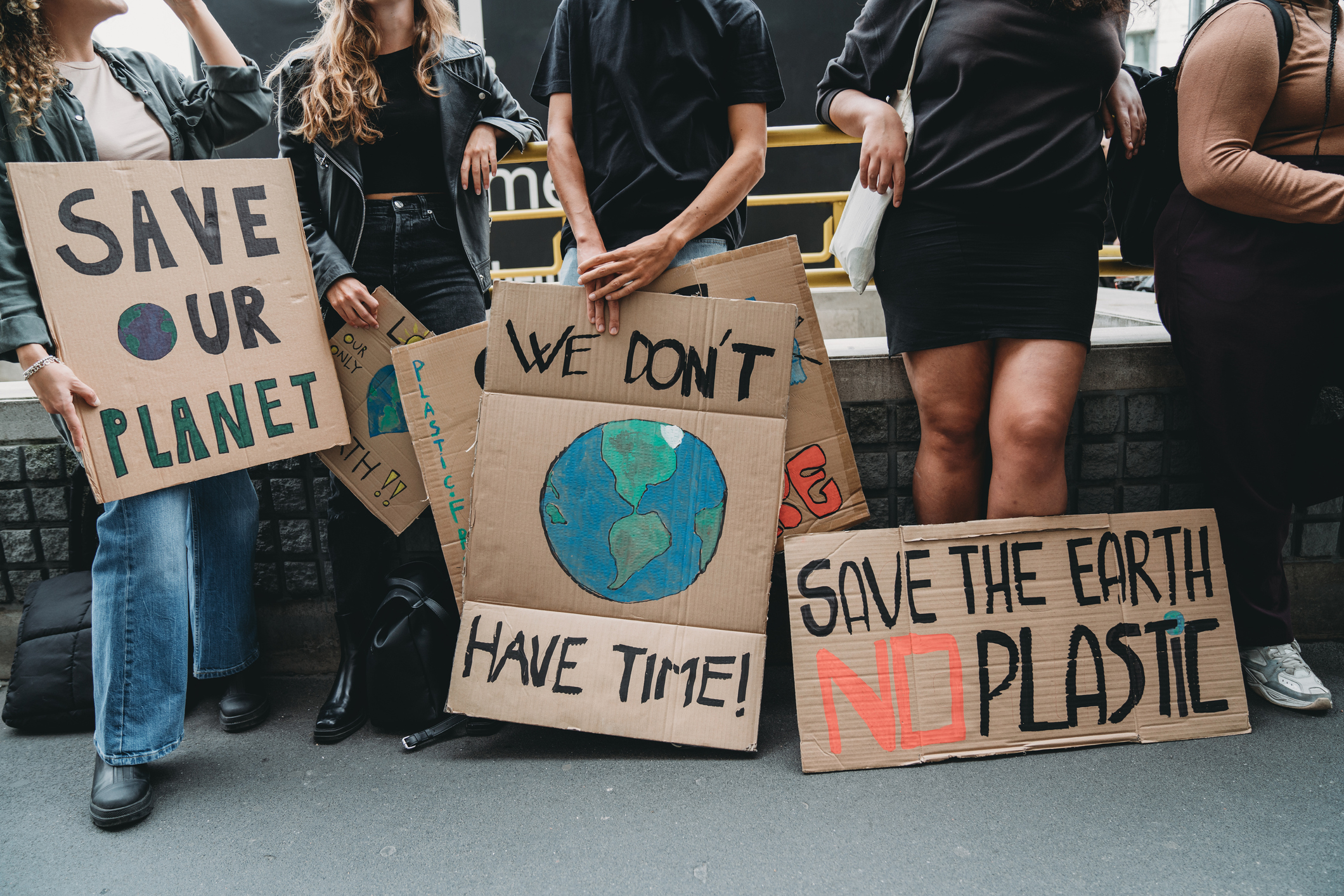 Climate anxiety is plaguing the world's youth
Climate anxiety is plaguing the world's youthSpeed Read Young people are worried the world will become "a harder, darker, scarier place"
-
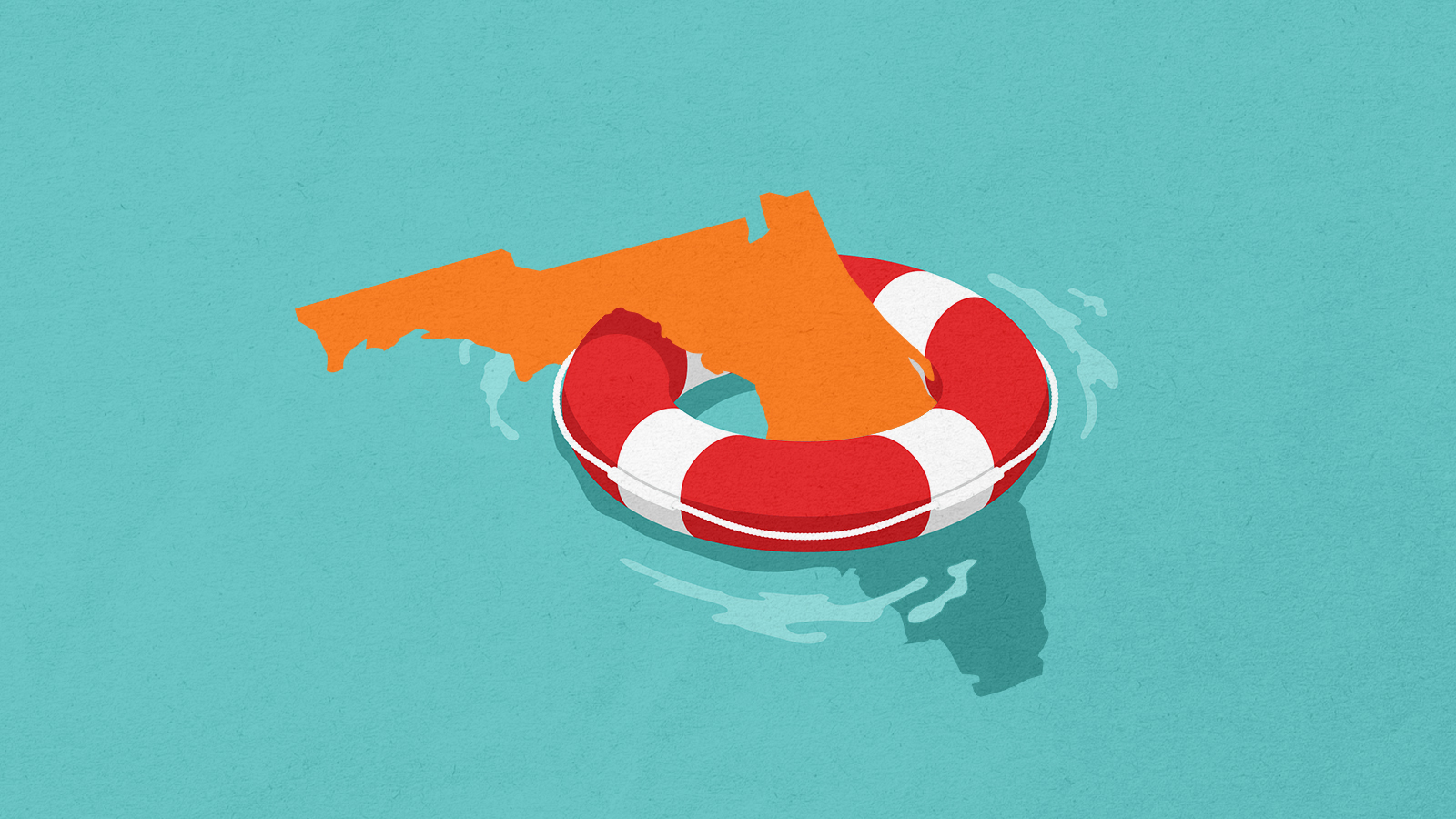 What climate change means for Florida's future
What climate change means for Florida's futureSpeed Read "The tide is coming in"
-
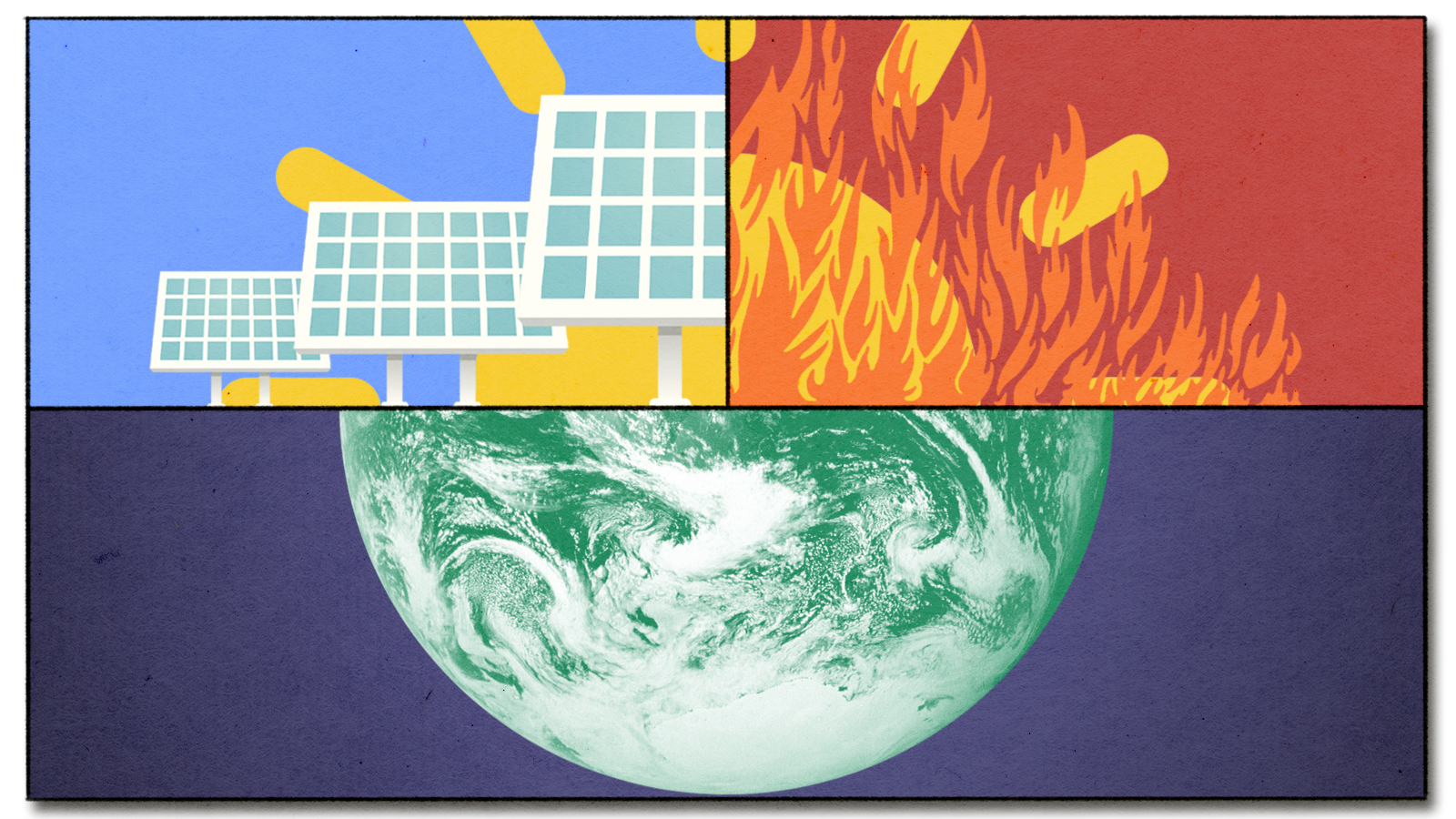 The successes and failures of the COP27 climate summit
The successes and failures of the COP27 climate summitSpeed Read Help for poor countries, but no progress on carbon emissions
-
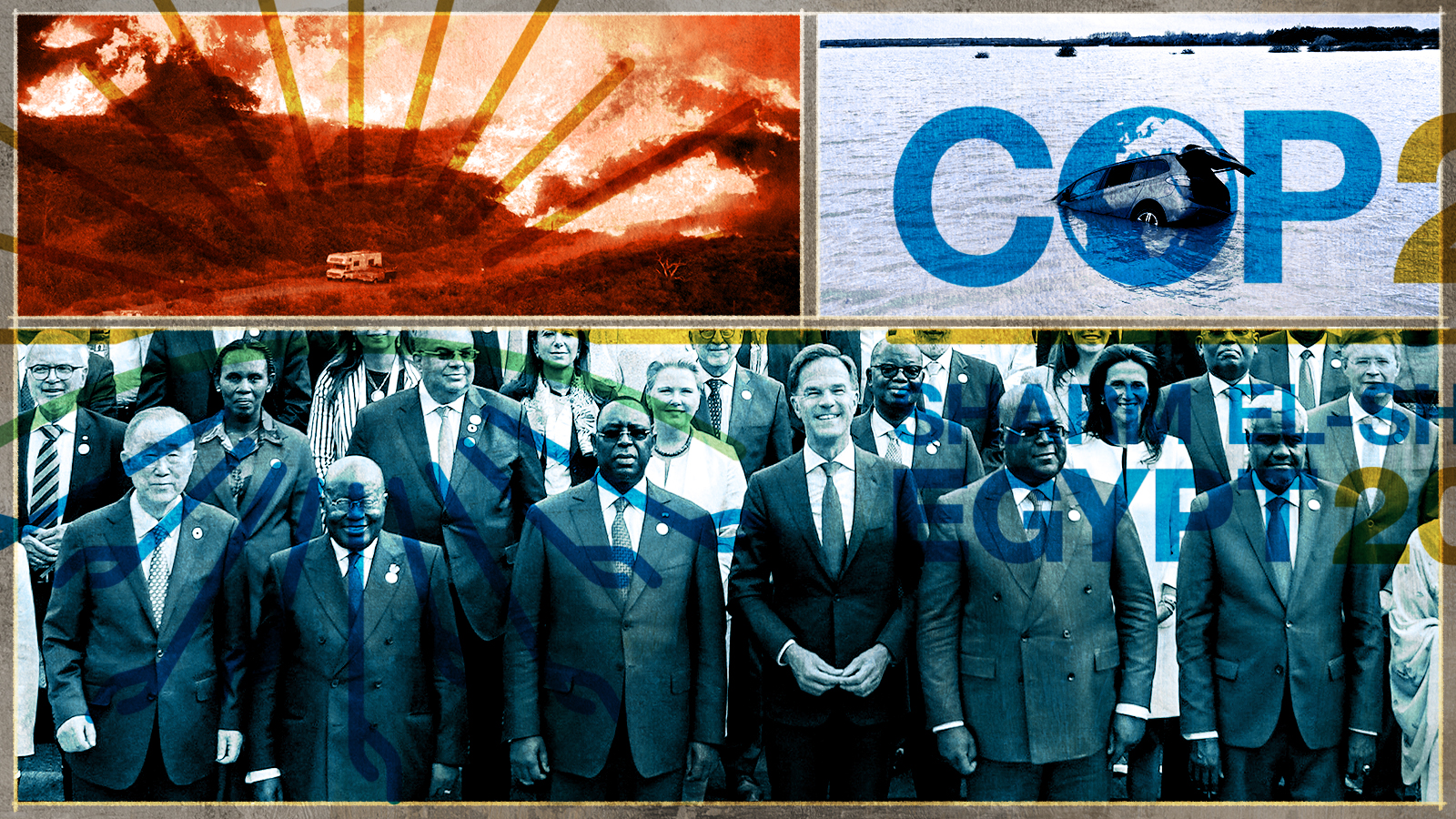 What happened at COP27?
What happened at COP27?Speed Read Leaders and activists met in Egypt at a precarious time for the planet
-
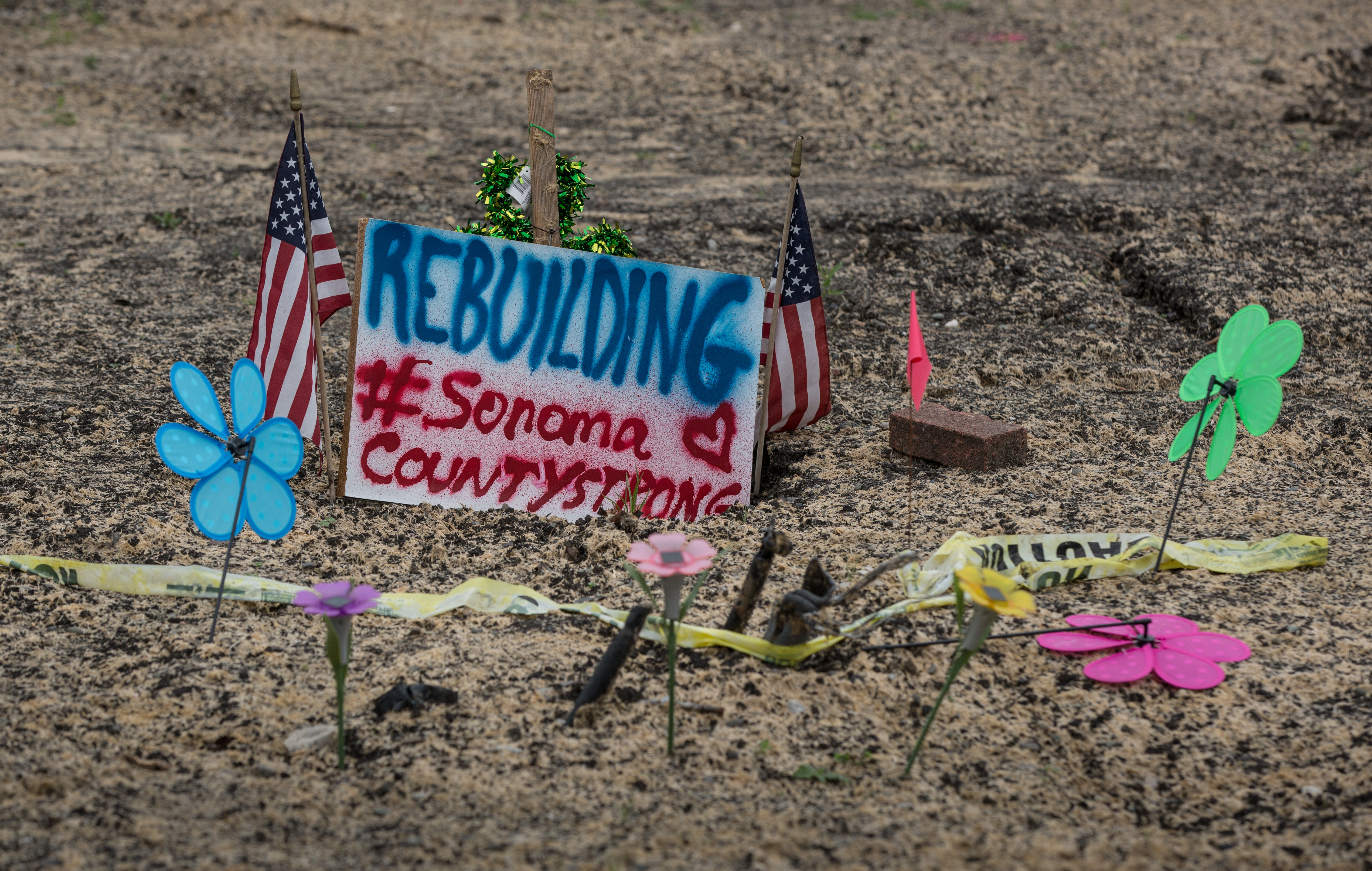 Rebuilding after climate disasters
Rebuilding after climate disastersSpeed Read The instinct to restore homes and businesses in vulnerable areas is being questioned as climate change intensifies
-
 The uneven effects of climate change
The uneven effects of climate changeSpeed Read Rapidly-intensifying weather and natural disasters are proving to create lopsided devastation across the globe.
